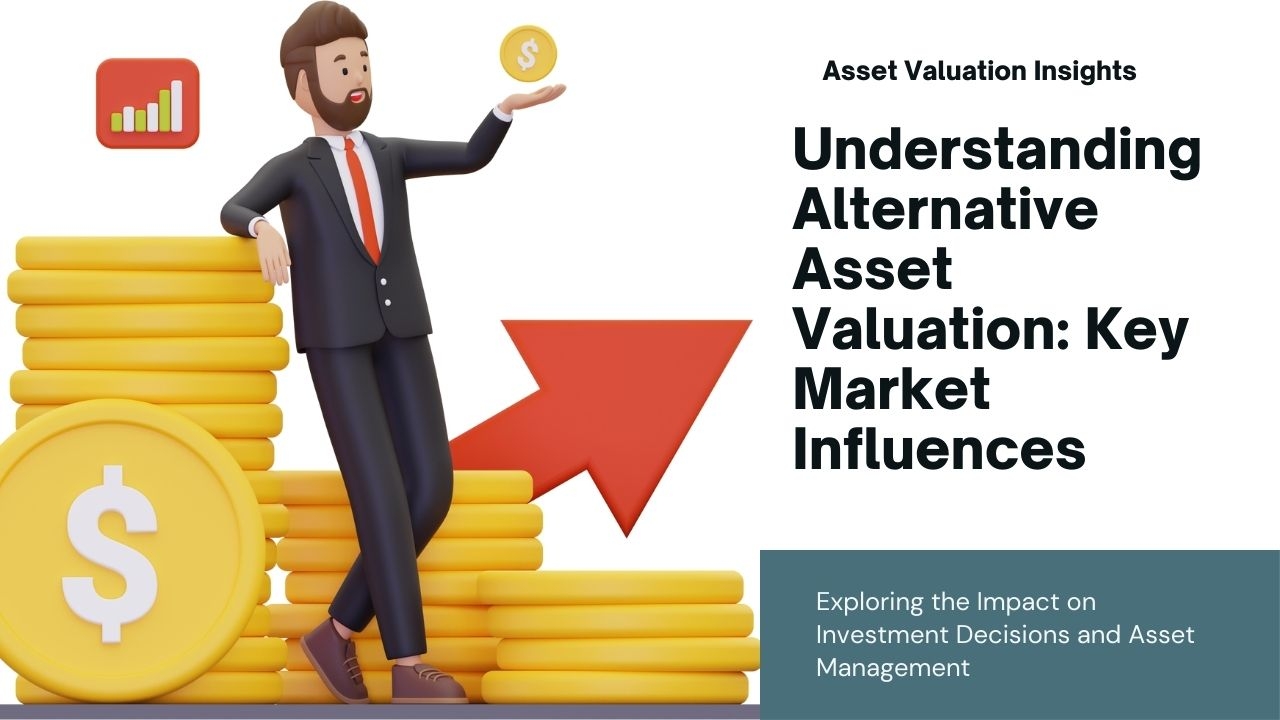Impact of Market Trends on Alternative Asset Valuation
Posted on 24 July, 2024 by Shaurya Pal

Alternative assets, such as real estate, private equity, hedge funds, and collectibles, are becoming increasingly popular among investors looking to diversify their portfolios. Unlike traditional assets like stocks and bonds, alternative assets often require specialized valuation techniques due to their unique characteristics. One of the key factors influencing the valuation of these assets is market trends. In this blog, we will explore how various market trends impact the valuation of alternative assets in simple terms.
Understanding Alternative Assets
Before diving into market trends, it’s essential to understand what alternative assets are. These are investments outside the traditional categories of stocks, bonds, and cash. Examples include:
- Real Estate: Property investments, both commercial and residential.
- Private Equity: Investments in private companies that are not listed on stock exchanges.
- Hedge Funds: Pooled investment funds that use various strategies to earn active returns.
- Collectibles: Items like art, antiques, and rare coins that can be appreciated over time.
How Market Trends Affect Alternative Asset Valuation
- Economic Conditions
The overall health of the economy plays a significant role in the valuation of alternative assets. During periods of economic growth, the value of real estate, private equity, and other alternative assets tends to rise as demand increases. Conversely, during economic downturns, these assets may lose value due to decreased demand and higher risk.
- Interest Rates
Interest rates set by central banks influence the cost of borrowing money. Lower interest rates make borrowing cheaper, which can increase investment in real estate and private equity. Higher interest rates can have the opposite effect, making loans more expensive and reducing investment activity, which can lower the value of these assets.
- Inflation
Inflation affects the purchasing power of money. When inflation is high, the cost of goods and services rises. This can impact alternative assets differently. Real estate and commodities like gold often retain or increase in value during inflationary periods, acting as a hedge. However, other assets like private equity might struggle as higher costs squeeze profit margins.
- Market Demand and Supply
The balance of supply and demand directly impacts asset prices. In real estate, for instance, an oversupply of properties can lead to lower prices, while high demand with limited supply can drive prices up. The same principle applies to other alternative assets like art and antiques, where rarity and desirability influence value.
- Regulatory Changes
Changes in laws and regulations can also impact the valuation of alternative assets portfolios. For example, new tax incentives for renewable energy projects can boost the value of investments in that sector. Conversely, stricter regulations on hedge funds could increase operational costs and reduce profitability, affecting their valuation.
- Technological Advancements
Technological innovation can create new opportunities and risks for alternative assets. For instance, advancements in financial technology (fintech) have made it easier to trade and manage alternative investments, potentially increasing their value. However, technology can also disrupt existing industries, leading to declines in asset values in affected sectors.
- Global Events
Events like political instability, natural disasters, or pandemics can have significant impacts on asset valuations. For example, the COVID-19 pandemic caused significant volatility in real estate markets worldwide. Understanding how such events influence different types of alternative asset management is crucial for accurate valuation.
Strategies for Managing Market Impact
Given the diverse factors that influence the valuation of alternative assets, investors can adopt several strategies to manage market impact:
- Diversification: Spreading investments across different types of alternative assets can reduce risk.
- Staying Informed: Keeping up with market trends and economic indicators helps investors make informed decisions.
- Professional Valuation: Hiring experts to regularly assess the value of alternative assets ensures accurate and up-to-date valuations.
- Hedging: Using financial instruments to hedge against risks like inflation and interest rate changes can protect asset values.
Conclusion
The valuation of alternative assets is complex and influenced by a variety of market trends. Understanding how economic conditions, interest rates, inflation, supply and demand, regulatory changes, technological advancements, and global events affect these assets is crucial for investors. By staying informed and adopting effective management strategies, investors can better navigate the challenges and opportunities presented by market trends, ensuring the optimal valuation of their alternative asset portfolios.